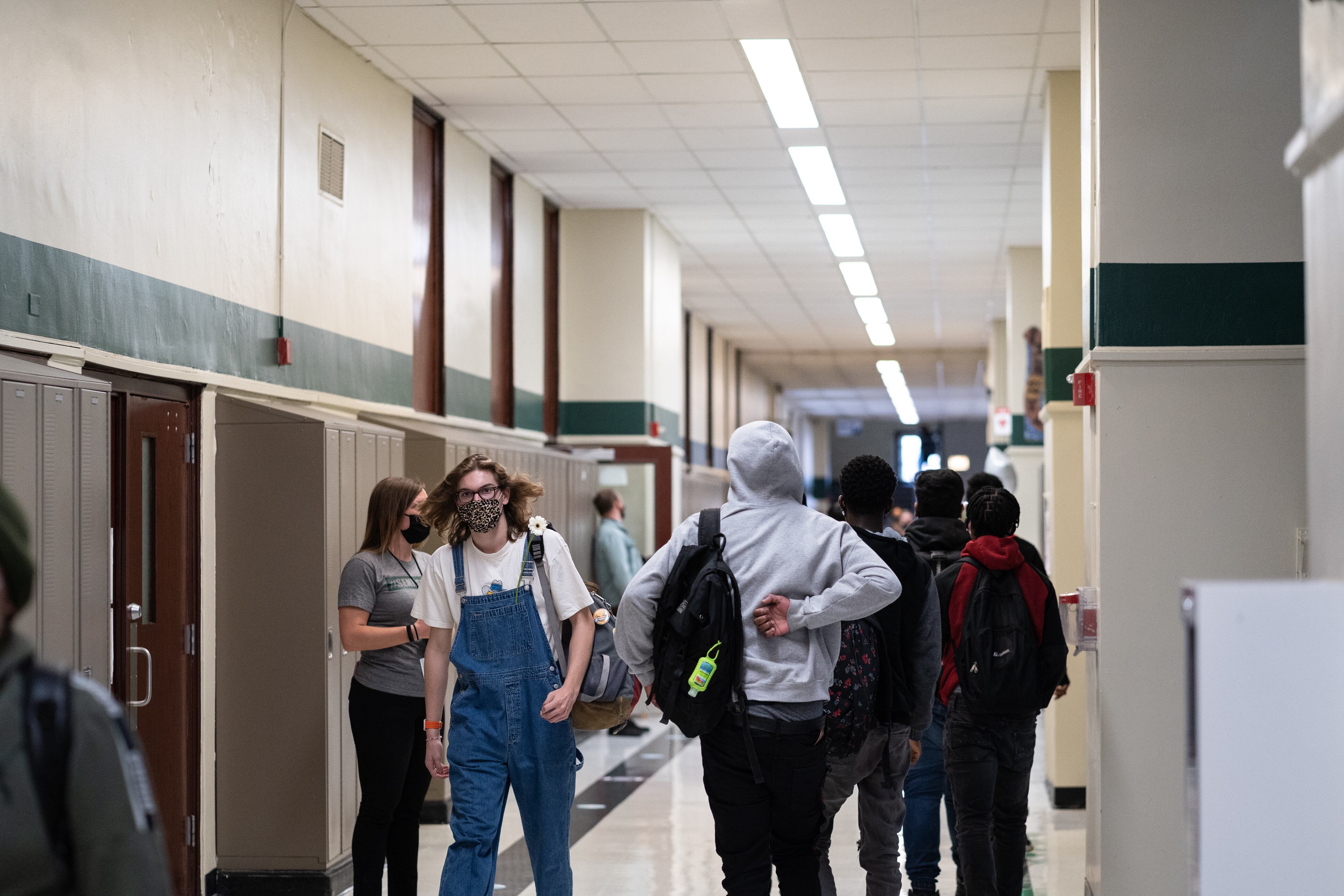This story has been updated to reflect a statement from the Illinois State Board of Education.
Chicago Public Schools is returning nearly $90 million in education money that it mistakenly received due to a coding error by the state board of education.
The Chicago school board on Wednesday authorized a plan to pay back about $11 million annually over the next eight years. The agreement comes months after the Illinois State Board of Education announced it had discovered an error that led it to overpay CPS $87.5 million since 2019.
The state has been working to increase funding to schools with the highest need under a law that went into effect in 2018. The evidence-based funding model uses a complex calculation to determine the amount of money a district needs to provide an adequate education. The state is aiming to get every district to 100% “adequacy” by 2027.
Under the state’s formula, Chicago is currently 68% adequately funded.
“There is a deep inequitable irony to the fact that they recognize that they don’t fully fund us and then are taking money back from us that they gave to us,” said Chicago school board member Elizabeth Todd-Breland.
Todd-Breland said the agreement to repay the state for its error would add a burden to funding programs, especially as the city has tapped the district to help pay for pension payments. The district has paid millions toward Chicago’s underfunded pensions since 2020. The cost was previously covered by the city.
“We are trying to do good work here for kids,” she said. “We need the money to do it and to meet the needs that we know are just getting greater and greater for our young folks.”
According to a presentation posted to the state board’s website, a contractor overstated the enrollment of students attending state-authorized charter schools in Chicago between 2019 and 2022.
Chicago Public Schools was overpaid $6.7 million in 2019, $17.9 million in 2020 and 2021, and $44.9 million in 2022, according to a state audit report.
More than 750 districts were owed money as a result of the overpayment to CPS. The largest amounts owed – between $2 million and $5 million – were to Elgin U-46, Rockford District 205, Plainfield District 202, Community Unit School District 300 in Algonquin, and Waukegan District 60.
All schools owed funds as a result of the error were paid as of May 13, according to the state board.
Following the mistake, ISBE has returned to internally calculating enrollment and independently verifying future average student enrollment reports, said Chief Financial Officer Robert Wolf during an April webinar.
ISBE spokeswoman Jackie Matthews said the annual repayment amount represented “one tenth of one percent of CPS’ total operating budget” and would have “minimal impact on classrooms.”
Miguel Del Valle, president of the Chicago Board of Education, lauded the district’s counsel for negotiating a payment plan that “doesn’t hit us immediately.”
“We were able to negotiate a plan that still hurts,” Del Valle said, “but it would have hurt even more if we had just caved into them in terms of the demand on the mistake that they made.”
The Chicago Public Schools repayment will happen during fiscal years 2023 and 2030.
Mauricio Peña is a reporter for Chalkbeat Chicago, covering K-12 schools. Contact Mauricio at mpena@chalkbeat.org.







